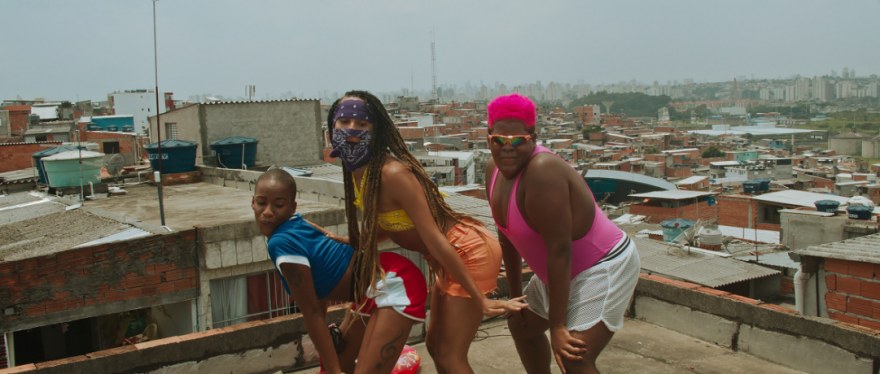Lunch with Bonde
Interview with Asaph Luccas, director of Bonde
Bonde tells the story of three young black friends who go out seeking for refuge in downtown LGBT+ night scene. How did you go about creating the three main characters?
Bonde was wrote by 8 people. We are all LGBTQIA+ individuals who lived most of our lives in São Paulo’s periphery, 6 of us are black. And besides working together, we are also really close friends so it should be clear now that it’s a very close to home kind of film, you know? Everything that happens in the film is familiar to us, some of those we lived ourselves and others happened really close. Creating those three characters was like going through experiences that we and our queer gang lived, also making the script open to the crew who had many things in common with them. The cast, Alice Marcone, Eric Oliveira and Joyce Brito were a huge part of this!
What hurdles did you face? Physical, financial etc?
Most of us never thought we would be making films one day because we all grew up seeing the face of brazilian cinema: w hite, straight, cisgender and rich. Old money rich. We are not part of the film universities. We are not part of the castings and sure as hell not part of the industry. We had to fight our way in and we still do, we studied in Instituto Criar, a film NGO, and we made Bonde (our 3rd short film) with the help of affirmative policies. Making films for us is a political statement, an investment hoping to help change this scenary. And we can’t forget that we also have been going through a process of boycott of all things LGBTQIA+ related by our government, so things aren’t getting easier for us…
Do you think short film circuit is more welcoming for minorities in general?
I can say it’s the only circuit we could be a part of. It’s the circuit we got to see other marginalized filmmakers creating and getting recognition. I say marginalized because as queer people we are a minority, but as black people we are 54% of the population in Brazil, we are actually the majority here, but you won’t see us on TV. And about the short film circuit you definitely won’t see 54% of the films there made by us. It’s still a long way to go…
Can you tell us a bit about what is it to make a film as a collective?
For us it’s such a special way of making films. We get the opportunity to think as a whole and dissect how 8 different people see things. Having all of those perspectives really helps when writing about marginalized identities. It’s not about egos, it’s about our biggest goal, changing things together! But also let’s not romanticize things, having 8 people creating together is hard. São Paulo is a huge city where most poor people live in the outskirst and have to spend 4 hours a day in public transportation to get to work so by saying that we wrote Bonde in the center of the city after our day jobs you know what we been through daily. Everytime we make something there’s like 8 people struggling to fit the project in their schedules.
Would you say that the short film format has given you any particular freedom?
Yes! There’s no brazilian feature films on movie theaters like ours, not even a little bit, right now we could only do Bonde as a short film. Not only because of the theme but also for the creative directions we took. For Bonde we wanted to explore internet imagery and meme culture in an experimental way, always with a twist, just like we did with funk music for the original sountrack by .enzo.
What do you consider your cinematographic references?
Since we never actually got to see ourselves in most of movies our references had to be broader than that. Internet culture was definitely our biggest inspiration. Y’all should check out Leona, Assassina Vingativa and Bonde das Maravilhas on YouTube, the first one is a web novela by the one and only Leona, a Brazilian queer icon, and the later is a funk girlgroup that we make a big direct reference in the post credits scene.
Bonde is part of International Competition I2.








